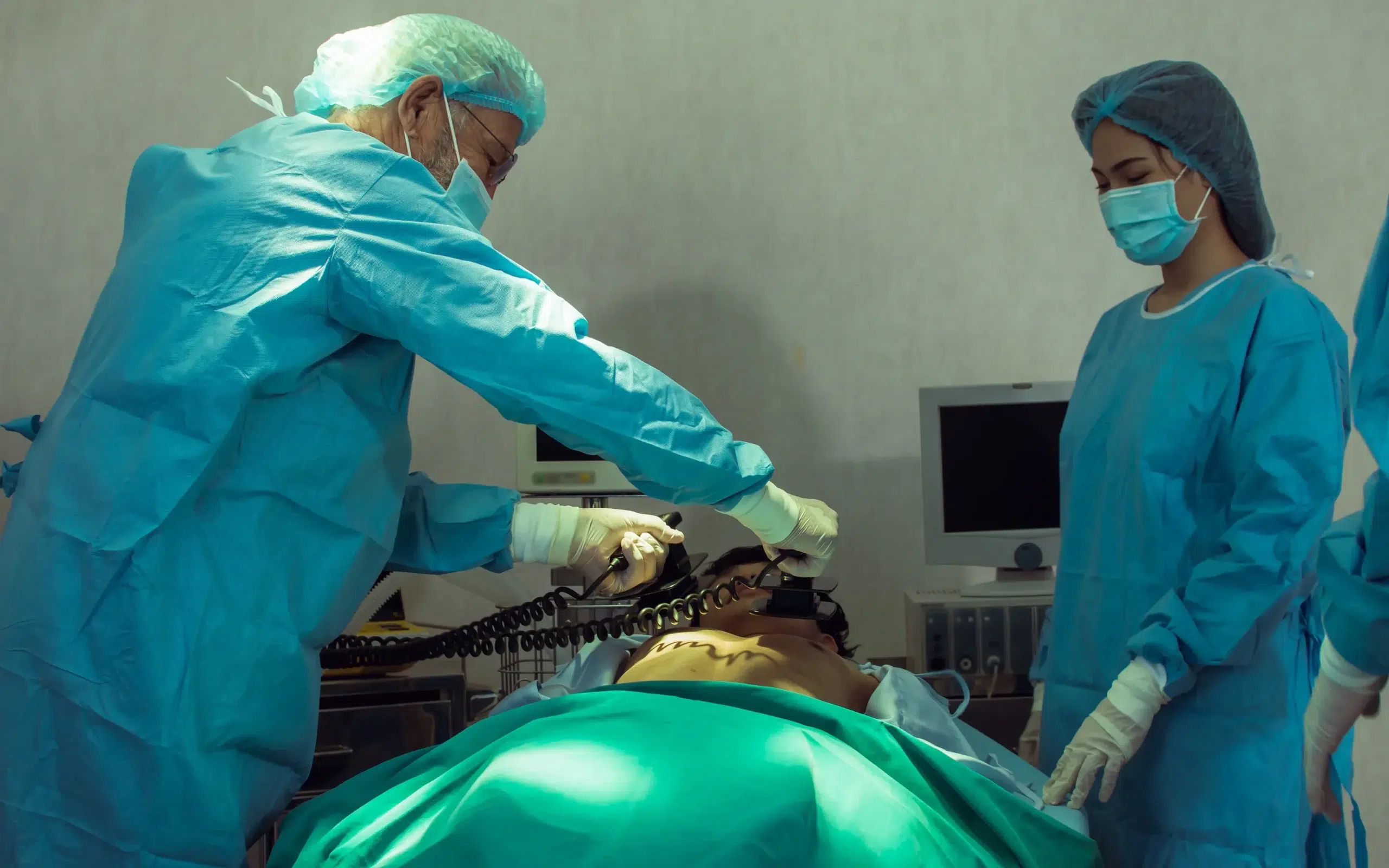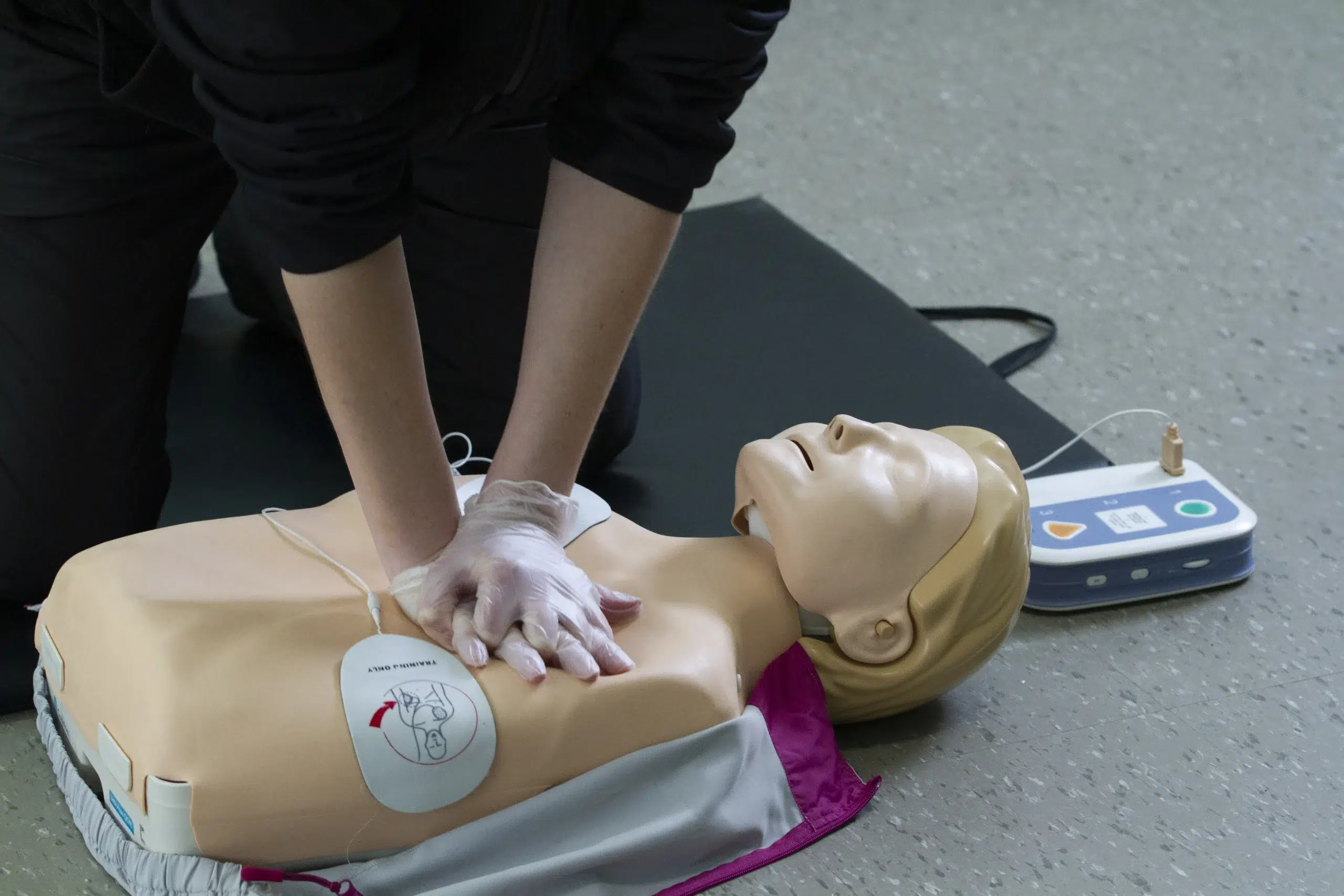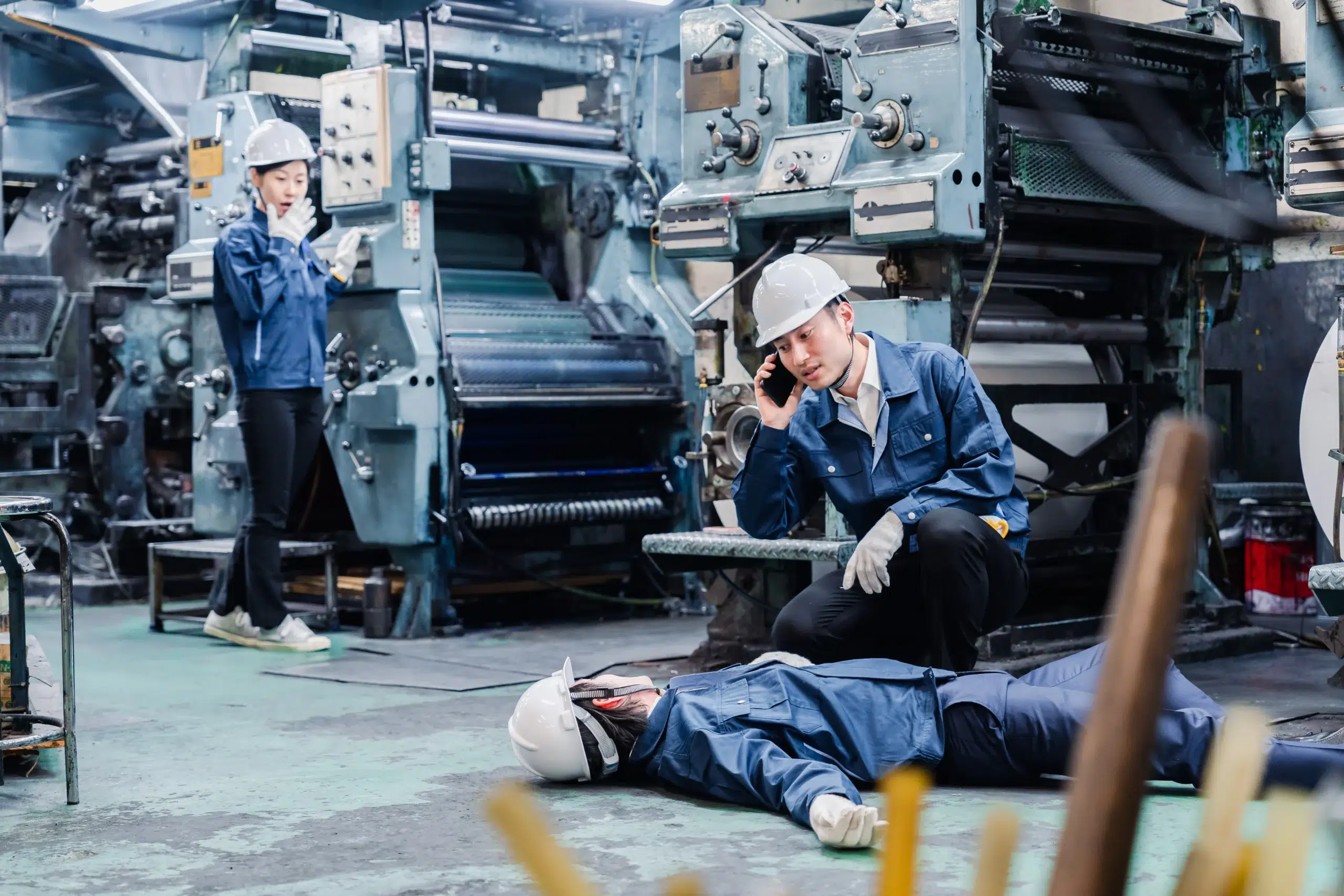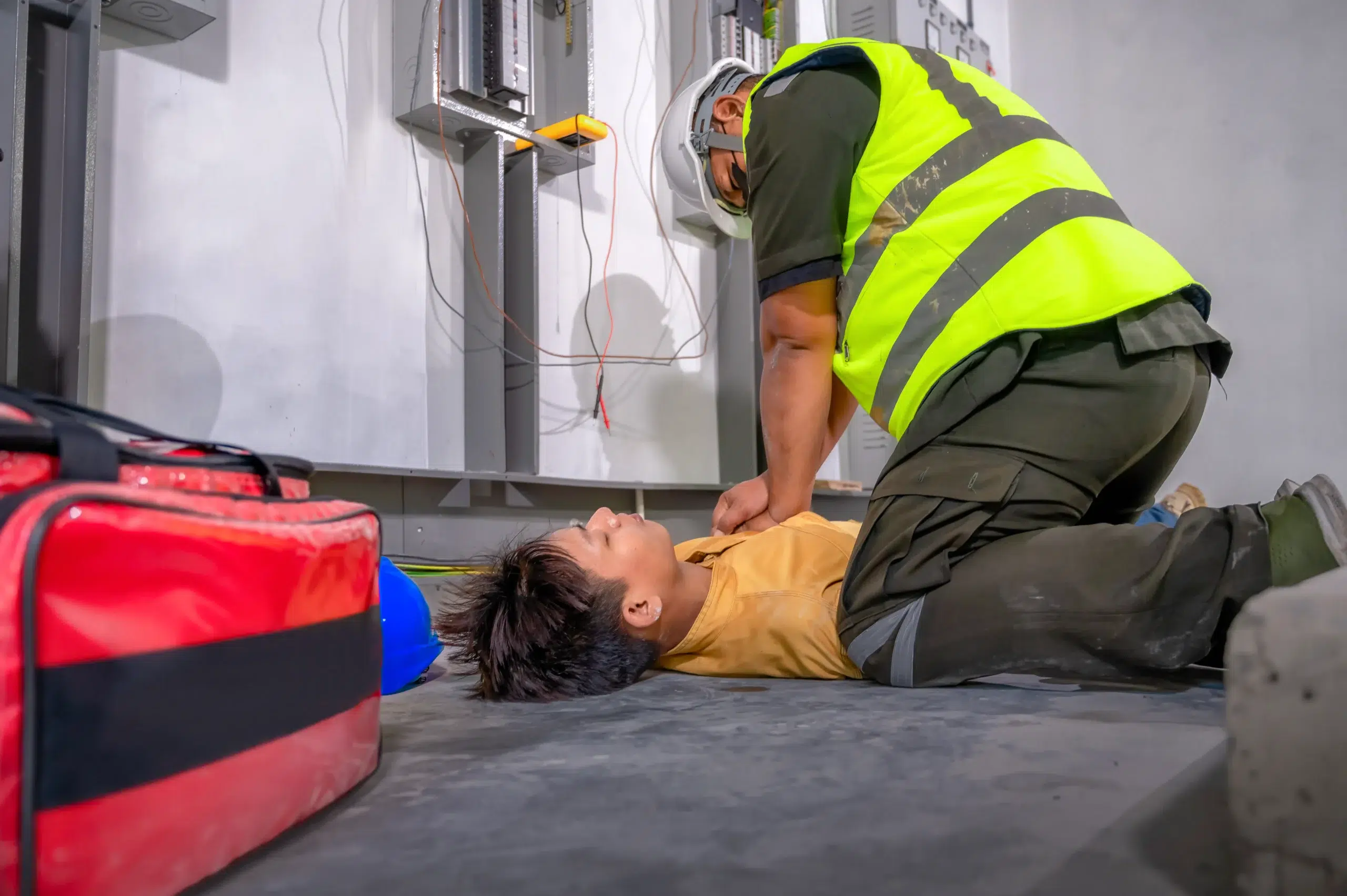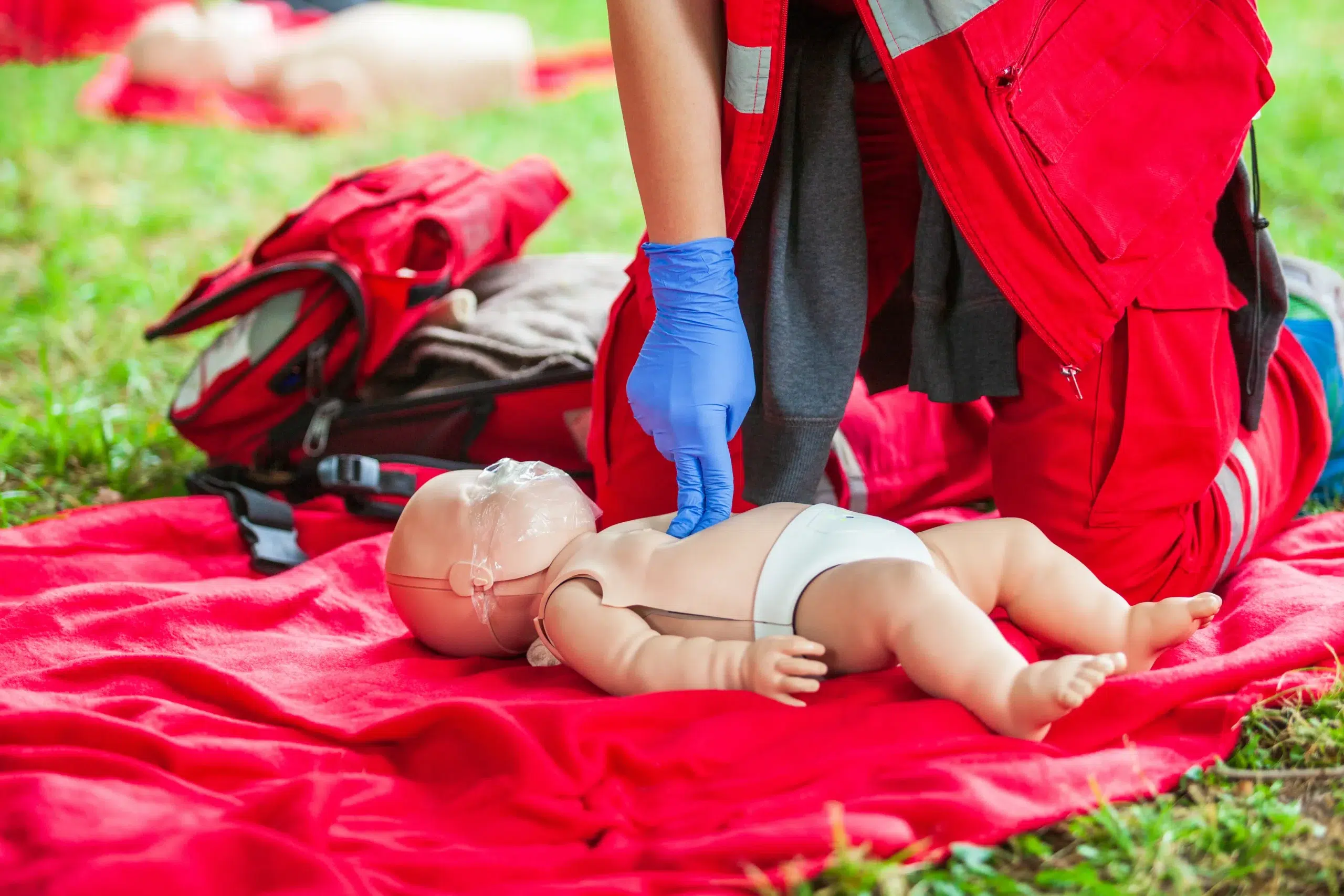Your BLS certification is about to expire—don’t panic! Renewing is easier than you think, and this guide will walk you through every step. We’ll cover the importance of BLS renewal, the different course formats available, and how to find the best “bls renewal near me” options. We’ll also debunk common myths and provide practical tips to prepare for your recertification course. Whether you’re a nurse, doctor, EMT, or any other healthcare professional, this guide will empower you to maintain your skills and continue providing top-notch care.
Key Takeaways
- Stay current with BLS: Regular BLS renewal ensures you have the latest life-saving skills, demonstrating your commitment to high-quality patient care.
- Find the right course: Consider your learning style and choose a reputable provider like Danville CPR Classes, offering various course formats and a low price guarantee.
- Prepare for a smooth renewal: Gather your BLS card, photo ID, and refresh your knowledge of core concepts before class for a positive learning experience.
What is BLS Renewal?
BLS certification, short for Basic Life Support, is a vital credential for healthcare providers, first responders, and anyone who needs the skills to handle medical emergencies. Think doctors, nurses, EMTs, lifeguards, and even fitness instructors. It covers core life-saving techniques like CPR, recognizing and responding to cardiac arrest, using an AED, and relieving choking. Like many certifications, BLS doesn’t last forever. BLS renewal is the process of recertifying your skills and knowledge to ensure they’re up-to-date and you’re prepared to act quickly and effectively in a crisis. It’s about staying sharp and confident in your abilities to provide immediate care when it matters most. Danville CPR Classes offers a range of American Heart Association courses, including BLS.
Why BLS Renewal is Important
Renewing your BLS certification is more than just checking a box; it’s a commitment to maintaining the highest standards of patient care. Regular BLS renewal ensures you’re proficient in the latest resuscitation practices and techniques. Medical guidelines and best practices can change, and renewal courses keep you informed. Plus, consistent practice reinforces those crucial skills, like delivering high-quality chest compressions and rescue breaths, ultimately increasing the chances of positive outcomes in emergencies. It also demonstrates your dedication to professional development.
Expiration and Renewal Timelines
AHA BLS certification is typically valid for two years. It’s important to keep track of your expiration date and plan for renewal accordingly. You can usually renew your certification up to 30 days after it expires, but it’s always best to avoid any last-minute scrambling. Check with your certifying organization, like the American Heart Association, for specific guidelines. Danville CPR Classes offers a low price guarantee, making it easier to fit renewal into your budget.
Common BLS Renewal Myths
There are a few misconceptions surrounding BLS renewal. One common myth is that you can simply renew online without demonstrating your skills. In reality, BLS renewal requires completing a hands-on course and passing an exam to ensure competency. Another myth is that your previous card is valid indefinitely. Unfortunately, there’s no grace period after expiration, so make sure you’re proactive about renewing. Don’t let these myths trip you up! Stay informed and plan so you can keep your certification current. If you have any questions, reach out to a reputable provider—you can contact Danville CPR Classes directly for clarification.
Find the Best BLS Renewal Options Near You
So, your BLS certification is about to expire—now what? Don’t worry, renewing is straightforward. This section breaks down how to find the best BLS renewal course for your needs, whether you’re a nurse, a medical student, or anyone needing recertification.
Online vs. In-Person: Pros and Cons
Deciding between online and in-person BLS renewal is the first step. Both options typically provide same-day certification, but the learning experience differs. Online BLS renewal courses offer incredible flexibility, letting you learn at your own pace from anywhere with an internet connection. This is perfect if you have a busy schedule or limited access to transportation. Online courses also allow you to focus on specific areas where you might need a refresher. However, they may not provide the same level of hands-on practice as an in-person class.
In-person classes offer immediate feedback from certified instructors and the opportunity to practice skills in a real-world setting. This can be especially helpful for kinesthetic learners. If you thrive in a classroom environment and enjoy interacting with other healthcare professionals, an in-person course might be a better fit. In-person training often includes practicing on mannequins and receiving real-time feedback, which can build confidence in your skills.
Local Training Centers and Providers
Finding a reputable training center is key to a valuable BLS renewal experience. Look for AHA-certified training centers like Danville CPR Classes, which offer the high-quality training you need. Consider factors like location and class schedules. Reading online reviews from past participants can give you valuable insights into the quality of instruction and the overall learning environment. Don’t forget to inquire about group discounts if you’re renewing with colleagues.
Choose the Right Course Format
Beyond online versus in-person, think about the overall course format. Some providers offer blended learning, combining online modules with in-person skills sessions. This approach gives you the flexibility of online learning with the hands-on practice of a traditional class. When choosing a provider, also consider whether they offer additional training opportunities or specialized certifications. If you’re looking to expand your skillset beyond basic BLS, choosing a provider that offers ACLS, PALS, or other advanced courses can streamline your continuing education. Finally, make sure the course aligns with your specific professional requirements. Contacting the provider directly can help clarify any questions you have about course content or format.
Compare BLS Renewal Costs and Value
When it comes to renewing your BLS certification, cost is understandably a factor. But remember, the value you receive should be just as important as the price tag. This section breaks down how to evaluate both.
Factors Affecting Price
Several factors influence the cost of BLS renewal courses. Your learning style plays a role—online courses sometimes differ in price from in-person training. The provider’s reputation matters too. AHA certification, like the kind offered at Danville CPR Classes, carries weight and often influences pricing. Finally, consider the overall course package. Are there extra fees for materials or certification cards? Don’t forget to explore potential discounts, especially if you’re renewing with a group.
Average Costs
While prices vary, understanding the average cost for BLS renewal gives you a helpful benchmark. Some providers, like Tracy CPR Classes, offer BLS renewal for around $120, covering the online portion, skills test, and your certification card. Keep in mind that this is just one example, and prices can fluctuate based on location and the specifics of the course. Always check directly with the provider for the most up-to-date pricing. Hayward CPR Classes recommends looking for accredited providers with experienced instructors, which can also influence the overall cost.
Discounts and Deals
Before committing to a course, it’s worth exploring potential discounts. Many providers offer reduced rates for group renewals, so if you work with colleagues who also need recertification, see if a group discount applies. Danville CPR Classes offers a low price guarantee, ensuring you receive excellent training at a competitive rate. Some providers also offer discounts for returning students or other special promotions. Checking for these deals can help you save money without compromising on the quality of your training. Remember, getting the best value means finding the right balance between a good price and a reputable, high-quality course.
Top BLS Renewal Course Providers
Finding the right BLS renewal course means understanding your options. Let’s look at some key providers and what they offer.
Danville CPR Classes
Danville CPR Classes offers a range of American Heart Association (AHA) courses, including BLS renewal. They focus on high-quality instruction and often have a low price guarantee. If you’re in the San Ramon, Dublin, or Danville, CA area, their convenient location makes accessing CPR and first-aid certification straightforward. They also offer specialized training like EMSA Child Care Health & Safety and RQI classes. Reach out through their contact page for more information.
American Heart Association (AHA)
The AHA sets the standards for CPR and BLS. They offer courses directly or through certified training centers. An AHA-certified course ensures you’re learning the most up-to-date guidelines, as highlighted by providers like PALS St. Louis. This is a great option for widely recognized certification.
American Red Cross
The American Red Cross is another well-known provider of BLS renewal courses. They focus on accessible recertification, as explained on their BLS renewal page. The Red Cross is a solid choice if you value a familiar and reputable organization.
National Safety Council
The National Safety Council also offers BLS training and renewal. When considering them, think about factors like course format and cost, as advised by Safety Training Seminars. They offer a variety of options for different schedules and learning styles.
ProTrainings
ProTrainings focuses on the practical benefits of BLS recertification, such as improving resuscitation techniques and the quality of chest compressions, as discussed by Bay Area CPR. If hands-on skills development is important to you, ProTrainings might be a good fit.
Local Hospitals and Community Colleges
Many local hospitals and community colleges offer BLS renewal courses, often a convenient and cost-effective option. As Hayward CPR Classes suggests, look for accredited providers with experienced instructors and consider your learning style and schedule. Local options sometimes offer smaller class sizes and more personalized learning.
What to Expect from a Quality BLS Renewal Course
So you’re ready to renew your BLS certification—smart move. It’s essential for any healthcare provider, and honestly, it feels good to know you’re prepared for anything. This section covers what a high-quality BLS renewal course should offer. Use this as your checklist when comparing options.
Accreditation and Instructor Qualifications
First things first, confirm the course is accredited by a reputable organization like the American Heart Association (AHA). This ensures the training aligns with the latest guidelines and best practices. Equally important is the instructor’s experience. Look for instructors with extensive healthcare backgrounds and a passion for teaching. A knowledgeable and engaging instructor can make all the difference in how well you absorb the information. Review testimonials to get a sense of the instructor’s teaching style and expertise.
Course Content and Skills Assessment
A quality BLS renewal course should cover core skills like high-quality CPR, using an AED, and relieving choking. The course should also emphasize teamwork, communication, and the latest changes in resuscitation science. Hands-on practice is crucial. You’ll want ample opportunity to practice these skills in a realistic simulated environment. A good course will also include a skills assessment to ensure you’re proficient before you leave the classroom. This isn’t about passing a test; it’s about confirming you can confidently perform these life-saving skills when it matters most.
Flexibility and Scheduling
Life gets busy, so finding a course that fits your schedule is key. Many providers offer various course formats, including in-person, online, or blended options. Think about your learning style and what works best for you. Online courses offer flexibility, while in-person classes provide more hands-on practice and direct interaction with the instructor. Blended learning combines the best of both worlds. Also, consider the location and course times. Look for a provider that offers courses near you and at times that accommodate your schedule. We offer a low price guarantee and classes in over 60 cities, so feel free to contact us if you have questions.
Evaluate BLS Renewal Providers: Reviews and Reputation
Choosing the right BLS renewal provider is crucial for a positive and effective learning experience. It’s not just about checking a box; it’s about maintaining your skills and confidence to respond in critical situations. Here’s how to assess providers based on feedback, potential issues, and value.
Interpret User Feedback
Real experiences shared by others offer valuable insights. Look for reviews and testimonials that highlight positive learning experiences, like this one praising the clarity and effectiveness of a provider’s ACLS, PALS, and BLS recertification courses. Pay attention to comments about the quality of instruction, course materials, and the overall learning environment. While individual experiences vary, consistent positive feedback is a strong indicator of a reputable provider. For example, a good review might mention comprehensive content and skill development, like ensuring participants understand essential topics and can respond effectively in emergencies, as highlighted in this review of an online BLS renewal course.
Spot Red Flags
While positive reviews are encouraging, also be aware of potential red flags. If you see several reviews mentioning inadequate equipment, disorganized classes, or instructors who seem rushed or unprepared, proceed with caution. This helpful article on what to look for in BLS certification providers emphasizes the importance of a provider’s reputation, the quality of instruction, and the amount of hands-on practice. This BLS recertification guide recommends looking for accredited providers with experienced instructors. These are all key factors to consider when making your decision.
Balance Cost and Quality
Cost is a factor, but don’t let it be the only deciding factor. The lowest price doesn’t always mean the best value. A quality BLS renewal course is an investment in your skills and ability to provide critical care. This guide on finding BLS renewal courses wisely suggests considering the provider’s reputation (AHA certification is a good starting point) and course costs, being mindful of any hidden fees. This resource on finding BLS training recommends evaluating the course format (online, in-person, or blended) alongside cost and reputation. Finding the right balance between a reasonable price and a high-quality course ensures you receive the best possible training.
Prepare for Your BLS Renewal
Getting ready for your BLS renewal doesn’t have to be stressful. With a little planning, you can walk into your recertification course feeling confident and prepared. Here’s how to get ready:
Gather Required Documents
Before your BLS renewal course, check with your chosen provider (contacting Danville CPR Classes is easy!), but you’ll generally need a few key things. Your current BLS provider card is essential to prove your existing certification. Some providers also require a government-issued photo ID. If you have any special accommodations or learning needs, gather the necessary documentation. Finally, review your provider’s policies on refunds and cancellations, just in case your plans change.
Refresh Your Knowledge
While you don’t need to be a BLS expert walking in, brushing up on the basics can make your renewal course much smoother. Think of it as a refresher—going over key concepts like high-quality CPR, recognizing someone needing BLS, and the latest techniques for chest compressions and rescue breaths. This will help you get the most out of your recertification class. Resources like those from Bay Area CPR highlight the benefits of staying up-to-date on these lifesaving skills.
What to Bring to Class
Knowing what to bring can help you feel organized and ready to learn. Bring a notebook and pen to jot down notes and any important updates. Comfortable clothing is also a must, as you’ll be practicing skills like CPR. A water bottle is a good idea to stay hydrated. And finally, don’t forget your government-issued photo ID and your current BLS card. When choosing your course, consider factors like course format and the training center’s reputation, often highlighted in guides like the one from Hayward CPR Classes.
Related Articles
- Your Guide to BLS Renewal in Dublin – Danville CPR Classes
- BLS Certification Dublin: Costs, Courses & Providers – Danville CPR Classes
- BLS Certification Danville: A Comprehensive Guide
- Debunking Common CPR Myths for Better Preparedness
- Heartcode BLS Dublin: Your Certification Guide – Danville CPR Classes
Frequently Asked Questions
How long is my BLS certification valid? BLS certification through the American Heart Association is valid for two years. Keep track of your expiration date to avoid lapses in your certification.
What’s the difference between online and in-person BLS renewal? Both online and in-person renewal courses typically provide same-day certification upon successful completion. Online courses offer flexibility, allowing you to learn at your own pace and from anywhere with internet access. In-person classes provide real-time feedback from instructors and the opportunity for hands-on practice in a simulated environment.
How much does BLS renewal typically cost? Costs vary depending on the training provider, location, and course format. Check with specific providers for their pricing. Look for providers like Danville CPR Classes that offer a low price guarantee. Remember to inquire about group discounts if applicable.
What should I look for in a BLS renewal provider? Choose a provider accredited by a reputable organization like the AHA. Confirm the instructors have relevant experience and positive student reviews. The course should cover essential BLS skills, offer ample hands-on practice, and include a skills assessment. Consider factors like course format (online, in-person, or blended), schedule flexibility, and location convenience.
How can I prepare for my BLS renewal course? Gather your current BLS card, a government-issued photo ID, and any necessary documentation for special accommodations. Review basic BLS concepts like high-quality CPR, AED use, and choking relief. Bring a notebook, pen, comfortable clothing, and a water bottle to class. Familiarize yourself with the provider’s policies on refunds and cancellations.


